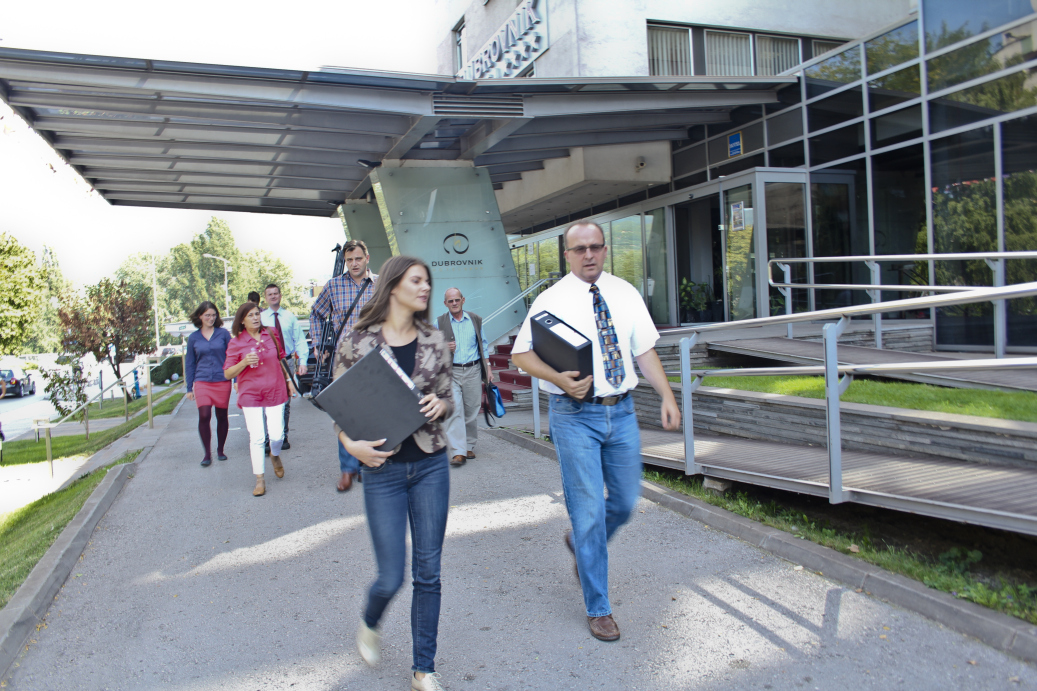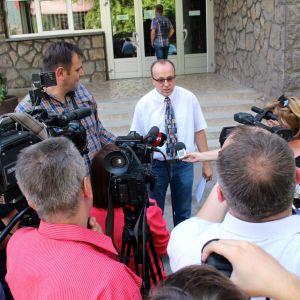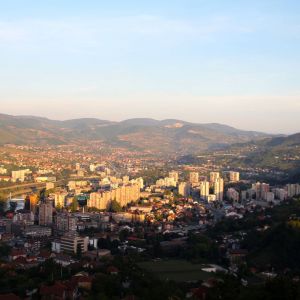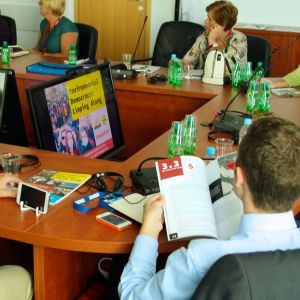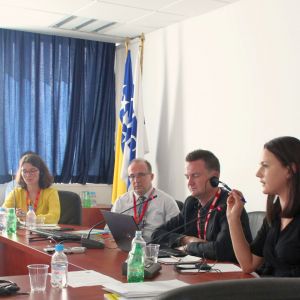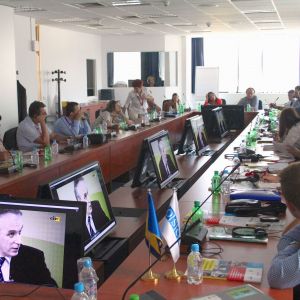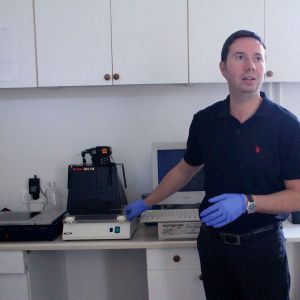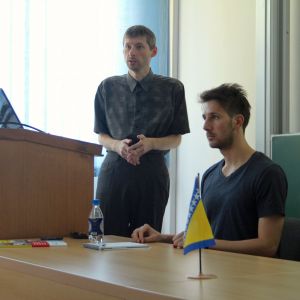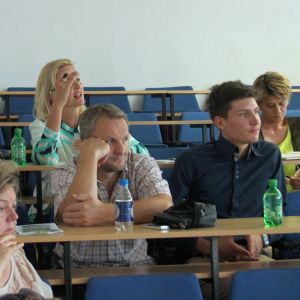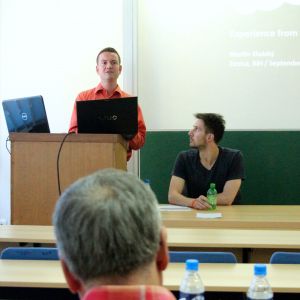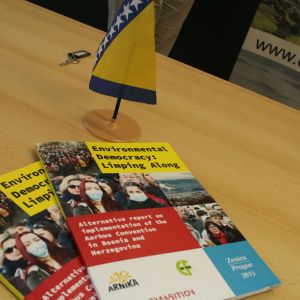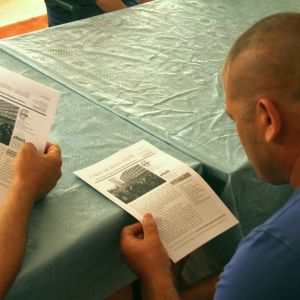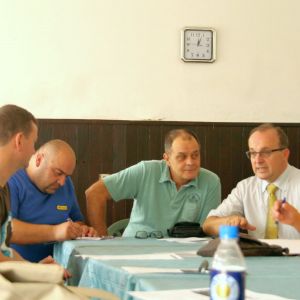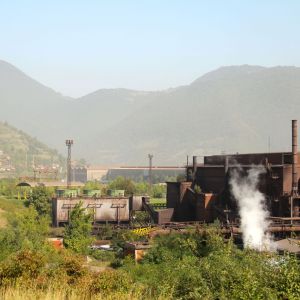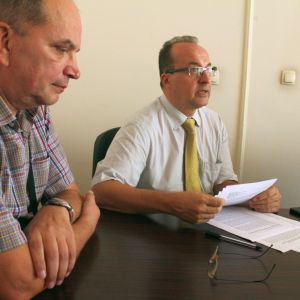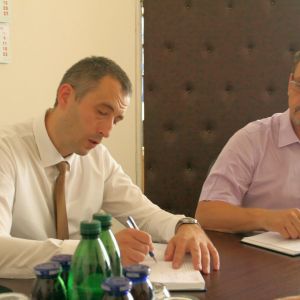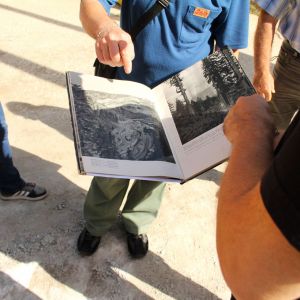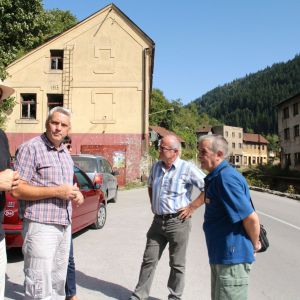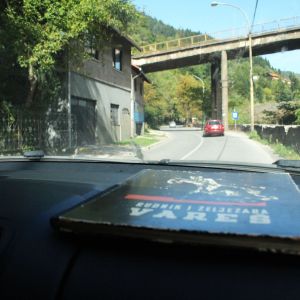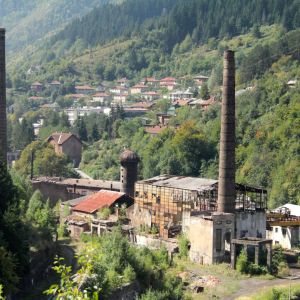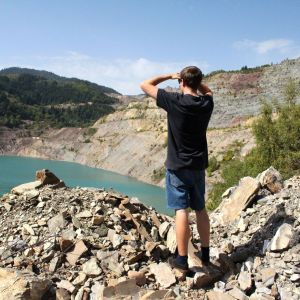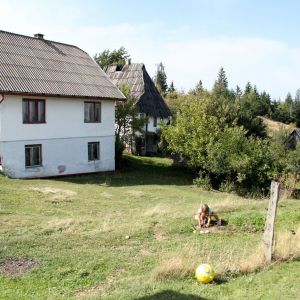Environmental democracy in Bosnia and Herzegovina: Limping along
The system of the state administration is confusing; authorities often violate legislation and civil society resists too little. At the same time, factories and power plants chuck out dust and toxic chemicals to the air. Construction projects endanger pristine nature as well as public spaces regardless of citizen opinions. Bosnian non-governmental organization Eko Forum Zenica and Arnika from the Czech Republic published an alternative report on the application of international Aarhus Convention on “environmental democracy” today. Together, they found Bosnian environmental policies good-looking on the paper but severely lacking in daily practice.
“Bosnia and Herzegovina is struggling to keep its European path by signing treaties such as Aarhus Convention. Even though it is rather well transposed into national legislation, its practical realization is way too poor,” says Samir Lemes, president of Eko Forum Zenica. He states: “Our report shows that our citizens have to fight bureaucratic obstacles because the division of responsibilities is unclear. Civil servants often lack information, capacity, and knowledge. The space for improvement is enormous.”
Faced with shortage of information, authors of the report Environmental Democracy: Limping Along carried out a research study among state authorities and NGOs. It revealed that up to 30% of the institutions do not respect the Free Information Act. The majority of requested authorities were able to provide so little information that is unclear how they can even work. No websites exist to integrate information on environment and current decision-making procedures. Because of this, people are informed too late to be able to affect important strategies or projects.
“The EU countries managed to find certain balance between economic development and protection of the environment. Bosnia feels the disadvantage of still waiting for accession. Some corporations move here, and dirty industries to avoid strict EU standards. Domestic companies also enjoy low regulation. In combination with ineffective state, pollution increases and collects its toll on public health. However, contamination does not respect the borders – so we should also be concerned,” points out Martin Skalsky of Arnika.
Failure to effectively inform the citizens severely limits public participation in decision-making. Although civil servants routinely violate the law, Bosnians almost never defend their rights for justice in court. Lawsuits are extremely rare due to poor education regarding personal rights and the high costs of producing admissible evidence.
Bosnia and Herzegovina employs 184 thousand people in administrative and political institutions (4 % of population) – which costs 3.1 billion euro annually (23 percent of GDP). For example, there are 170 ministries in the country, so the country has the most complicated structure in Europe.
“For development of countries such as Bosnia and Herzegovina, it is crucial to have critical reviews on its legislation and actions. The new report represents such a review. I believe that Bosnian officials will recognize people and NGOs dealing with environmental protection as equal partners in decision-making. The basic human right to life includes the right to live in a healthy environment,” explains Mirna Delalic, independent lawyer.
However, the state of environmental democracy in Bosnia and Herzegovina is not fully desperate. The report prepared by NGOs covers five successful campaigns of the civil society proving that the people have the power regardless of the sorry state of their country. Thanks to combination of the public pressure and legal instruments, 50 thousand citizens of Lukavac are no longer plagued by black dust from the local soda factory, and Bosnian rivers survived concreting because from hydropower plants. Even the unsuccessful fight of thousands people for a park in Banja Luka sparked a collective movement aimed at broader structural issues.
Notes
1/ More information on Aarhus Convention
2/ Report Environmental Democracy: Limping Along
3/ Some of the main findings of the report:
-
Every 20th citizen (184 thousand people) works in administrative and political institutions. It is fuelled by 23 % of GDP (3.1 billion euro every year). The administration has the most complicated structure in Europe, starting with 14 governments and 170 ministries.
-
Based on our survey, up to 30 % of state institutions do not provide information on written request and thus violate Free Information Act.
-
Most requested state institutions at all levels, including courts, were not able to provide comprehensive data on public participation in decision-making or even on procedures themselves.
-
No website exists on the state level to integrate and present information on environment and current strategies and projects.
-
Participation of individuals in environmental issues is very rare – due to lack of information and confusing administration, mostly only NGOs participate.
-
While civil servants routinely violate the law, citizens almost never use right for justice. Lawsuits are extremely rare, as courts only admit evidence produced by certified experts. Another reason is lack of education in person’s rights.
4/ Hotspots of environmental problems in Bosnia and Herzegovina
5/ About Eko Forum Zenica (Bosnia and Herzegovina)
The civic association Eko Forum Zenica was established in 2008 as a reaction to the immense environmental pollution from re-opening of Zenica steelworks by the Mittal consortium. It gradually became professionalized through the years and gained the respect of citizens and institutions. Today it has about 2000 members specialized in various fields, such as health protection, air monitoring, waste management, water protection, information technologies and media. Eko Forum is in regular contact with other NGOs operating in the canton and other parts of the country. http://www.ekoforumzenica.ba/
6 / About Arnika – Citizens Support Centre (Czech Republic)
Arnika – Citizens Support Centre has many years’ experience of promoting positive legislative changes and stopping attempts to narrow space for public participation in decision-making. Its experts help to solve tens of cases throughout the Czech Republic every year and participate in international projects protecting environment and implementing Aarhus Convention in Central and Eastern Europe, Caucasus and Central Asia. The Centre was established in 1996. Arnika is a member organization of The Green Circle – Association of Czech NGOs, European Environmental Bureau (EEB) and European ECO Forum. http://english.arnika.org/




